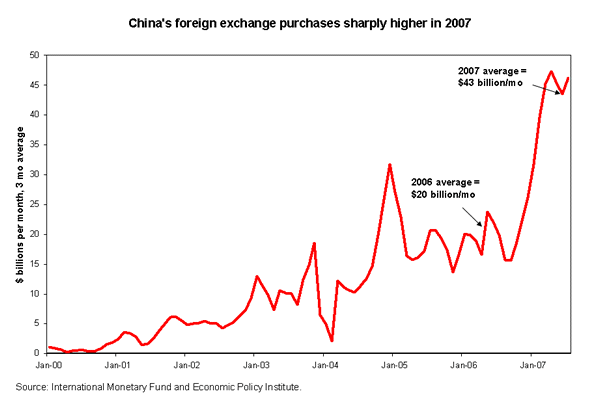See Snapshots archive.
Snapshot for October 24, 2007.
China escalates dollar purchases to depress value of yuan
In 2007, China has acquired $43 billion per month in foreign exchange reserves, roughly double the pace of 2006 (see Chart below). U.S. Treasury data show that about 70% of these reserves are held in U.S. dollars. China is on pace to acquire more than $500 billion in reserves in 2007, including about $350 billion in U.S. debt securities.

It is now widely understood that China intervenes in foreign currency markets to depress the value of its currency, the yuan, for competitive gain in selling to the U.S. market. This intervention will result in a projected U.S. trade surplus of $265 billion and a global surplus of $400 billion this year, both unprecedented sums.
The vast majority of China’s U.S. reserves are held in low-yielding debt securities, primarily Treasury bills and notes and agency securities. This is money that China could have used to invest in environmental clean-up, improved public health provisions, a more secure pension system, or other currently unmet social needs in China. The value of these securities in yuan, and the interest income they generate, will drop sharply when the dollar is finally allowed to fall to a sustainable exchange rate, as it must. China’s exposure to currency losses is escalating rapidly due to its massive purchases of foreign exchange reserves.
The longer this policy is sustained, the higher the ultimate cost to both the United States and China.
